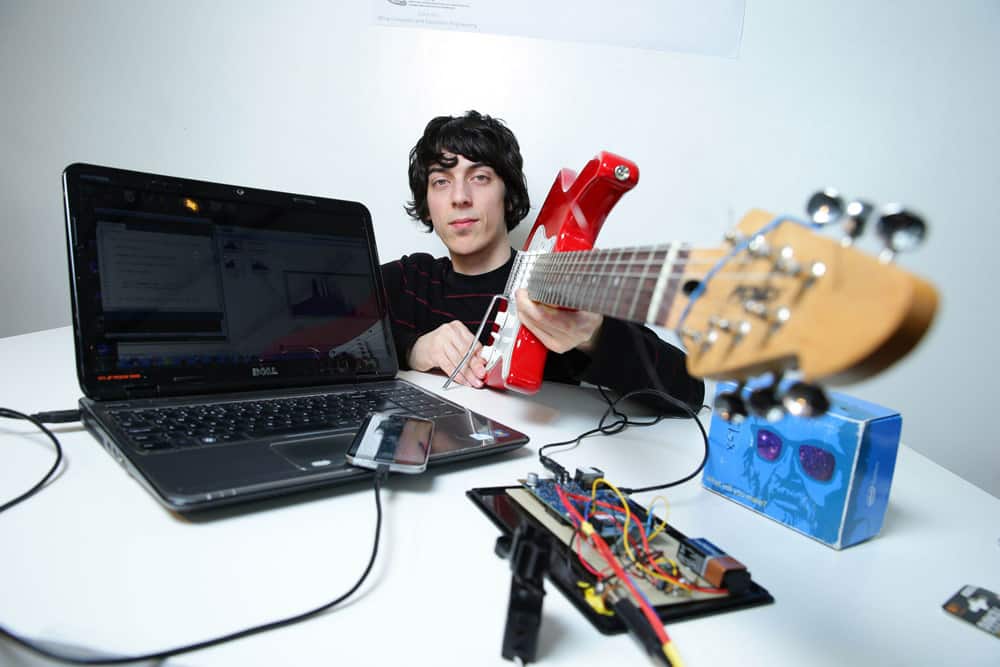Colin Gill with his G-Tune automatic guitar tuner
GMIT students dominated at the Intel Galileo Technology Competition at the Science Gallery in Dublin.
The competition, open to all third-level undergraduate students in Ireland, invites students to create projects based on the Irish-designed Intel Galileo board.
The Intel Galileo board is the first in a family of Arduino-certified development and prototyping boards based on Intel architecture and specifically designed for makers, students, educators, and DIY electronics enthusiasts.
The collaboration with Arduino sought to inspire creativity, learning and invention with makers and students and development kits and software programming interface that make it easier for artists, designers and other do-it-yourself enthusiasts, who often don’t have technical backgrounds, to create interactive objects or environments.
Intel has provided 50,000 Galileo boards to universities worldwide and since 2014 almost 1,000 boards have been provided to 21 different institutions across Ireland who have been integrating them into curriculum plans and using the boards for a variety of research projects.
This was the second year of the Intel Galileo Technology competition, which was created to give students the opportunity to showcase the projects that they have been creating with the Galileo boards.
The eight finalist projects came together on April 8th for a special showcase judged by representatives from Intel’s Internet of Things group.
The eight finalist Projects were:
- Cereal Monitoring System by Alan Holland, GMIT
- Bluetooth and wi-fi controlled data gathering car by Ronan Watkins, GMIT
- G-Tune by Colin Gill, GMIT
- Tech smart home by David Walshe, GMIT
- P.E.S. by Wai Hong Keet, Dundalk IT
- Plants need nurturing by Yipeng Shen, Carlow IT
- IoT security evaluation by Dáibhéid Denmead & Niall Myron, DIT
- ‘Frida’ the smart fridge by Elias Kelly & Julia Faulstich, IADT



